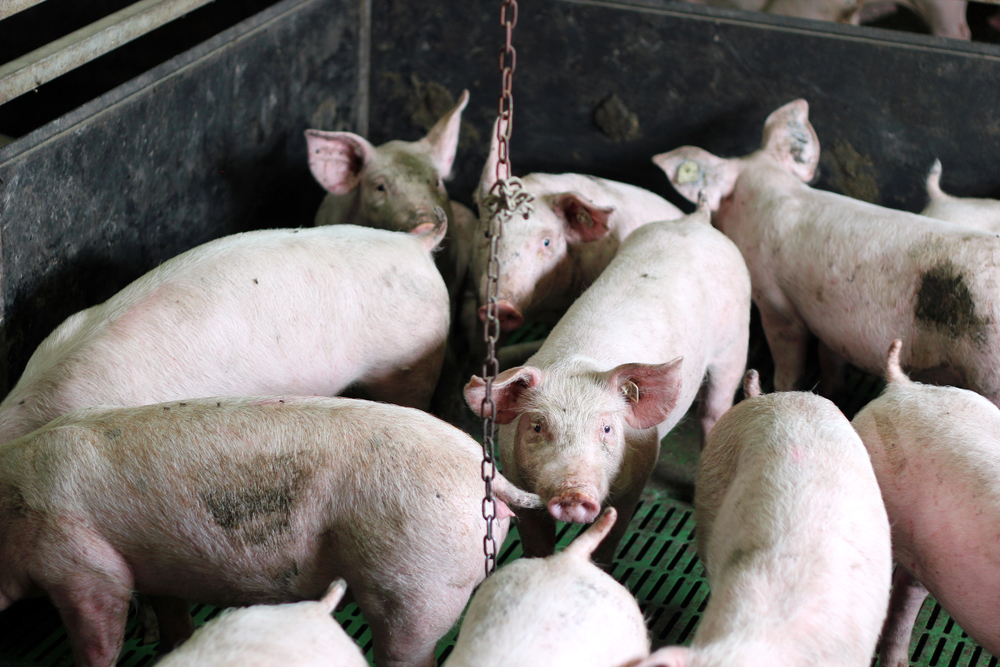“Day and night in the stench”: residents demand action on pigs
Senay Boztas
Sixteen people who suffer “unbearable” stench from pig factory farms stood against the state in an appeal court in The Hague on Thursday.
The group, who live in regions where more than 10 million pigs are raised for slaughter, claim the state is not doing enough to protect them from life-altering nuisance. In 2022, a local court ruled that the state must compensate them and respect a stricter odour limit around homes but the government appealed.
Pieter Catsburg, one of the plaintiffs from Zeeland, said that long legal battles and hours-long discussion about tables and figures did not do justice to the reality of his life amid 16 livestock farms.
“We are people: we are human beings who sit in the stench, an appalling amount of stench,” he told the court. “Lots of figures are thrown around. The pigs exceed the norms and the government acts as though nothing is wrong… This is about stink, people who are day and night in the stench, and are losing their lives because of it.”
Edward Brans, a lawyer representing the infrastructure ministry, argued that the previous verdict imposed a norm above which smell pollution is unlawful – “19.4 odour units per cubic metre”. But he said the figure was difficult to source and did not distinguish between direct polluters and “background” stench.
“By setting this boundary value, the court is treading in the domain of the lawmaker,” he told a courtroom of civil servants and several dozen concerned residents.
“A report found that in Limburg, North Brabant and Gelderland, primary pollution of 20 odour units per cubic metre affected around 2,000 non-industrial buildings, but it would be 5,000 to 6,000 if you measure background loads. There is a huge difference in the homes that are affected. We are living in a society where there is smell nuisance – that is just a fact.”
“Balance interests”
He said the government must “balance” the interests of residents and businesses – which pay for permits – but has extended laws for three municipalities to reduce animal numbers if stench pollution stacks up. Mathijs Peters, also for the state, admitted background smell is only routinely taken into account in farm permits when new housing is being built – not for existing stock.
Nout Verbeek, lawyer for the plaintiffs, accused the government of time-wasting when it could have appealed directly to the Supreme Court for a legal precedent. “The government has no complete plans for nitrogen-based pollution and the same is true of the stink problem,” he said. “It all falls on the heads of individual citizens who have the misfortune to live in a particular place.”
Pigs per farm up
The Netherlands currently has a population of just over 18 million humans and 10.6 million pigs. According to Dutch statistics office CBS figures in November, measures to clean up livestock farming introduced in 2020 have brought down the number of pig farms by 3.5% to some 3,000. However the number of pigs per farm has risen by almost a fifth to 3,400, in the last seven years.
Buy-out plans to reduce animal-based pollution in the Netherlands closed for application in December and the court heard that around 1,600 farmers, including pig and chicken firms, have signed up.
The court verdict is expected on March 25.
For some, though, it’s too late. One of the plaintiffs, who was present in court, said he had made his decision already. “It’s not for me any more,” he told Dutch News. “I have moved.”
Thank you for donating to DutchNews.nl.
We could not provide the Dutch News service, and keep it free of charge, without the generous support of our readers. Your donations allow us to report on issues you tell us matter, and provide you with a summary of the most important Dutch news each day.
Make a donation